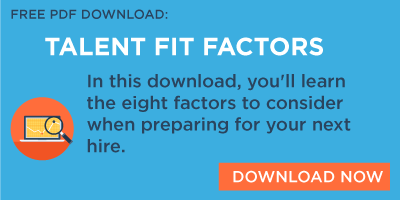 Hiring the right person takes the perfect blend of art and science; you bring the art and we bring the science. Let me explain.
Hiring the right person takes the perfect blend of art and science; you bring the art and we bring the science. Let me explain.
No one knows what the “perfect” hire looks like better than you. You know the culture and the vibe in your office, the style with which you prefer to work, and the expectations you will have of this person. You know whether or not someone will be the right fit for what you and your clients need. That’s the art.
Through our partnership with Talent Plus, we are certified to administer and analyze two of the very best validated talent assessments on the market today. These tools allow our talent analysts to confirm the specific intensity level of your candidate’s behaviors in the specific areas that are most important in the role you are filling. In other words, we can tell you what behaviors to expect if you decide to hire them and whether they have enough talent overall to perform successfully. That’s the science.
Imagine you are on a track team and gearing up for a big upcoming race. You’ve worked hard and you’ve been training for a long time, but this morning you learned that one of your teammates is moving across the country and leaving before the race.
What do you do?
You have to find a new teammate. But you’re in a hurry! You need to get them on board and ramped up so they can compete when it counts.
Let’s say you start looking and you find a guy you really like – great experience doing races similar to this one, seems dedicated and likeable enough – so you decide you want to know more. You would probably assess his talents and make sure that he has the potential to perform in the way you need him to. That would be smart. Let’s say the assessment comes back positive – overall, he is in good health and you have the thumbs-up to bring him on the team.
But also imagine this assessment told you that, while he is lightning fast, he has a weakness in his right knee that will likely prevent him from hopping very well. You might discuss it with your team and decide that doesn’t matter; this is a running race after all. You can work around that. So far, even with that weakness, the fit is still right.
What if you then learn that that his endurance is not strong, either? So, that breakneck speed that he can achieve will be more appropriate for a sprint than a distance run, and he will probably need to rest more often than others will. You might decide to focus on relays and give him a leg of the race with a shorter distance so that he can give you a solid lead when you need it. Another workaround. But the fit might still be fine.
Then what if you learn that this guy gets a horrible case of stage fright when there are crowds on the sidelines? A pep talk seems to help a little bit, but it is clear that he performs at his best when there are no spectators at all. Can you work around that? Are you willing to? He was recommended, but is the fit right? Not if there will be spectators all along the race route.
At that point you may decide you need to hold out for someone else. Someone who is also recommended by a scientific assessment but who is a better fit for exactly what you need on your team and in this role.
Talent is meaningless without Fit.



